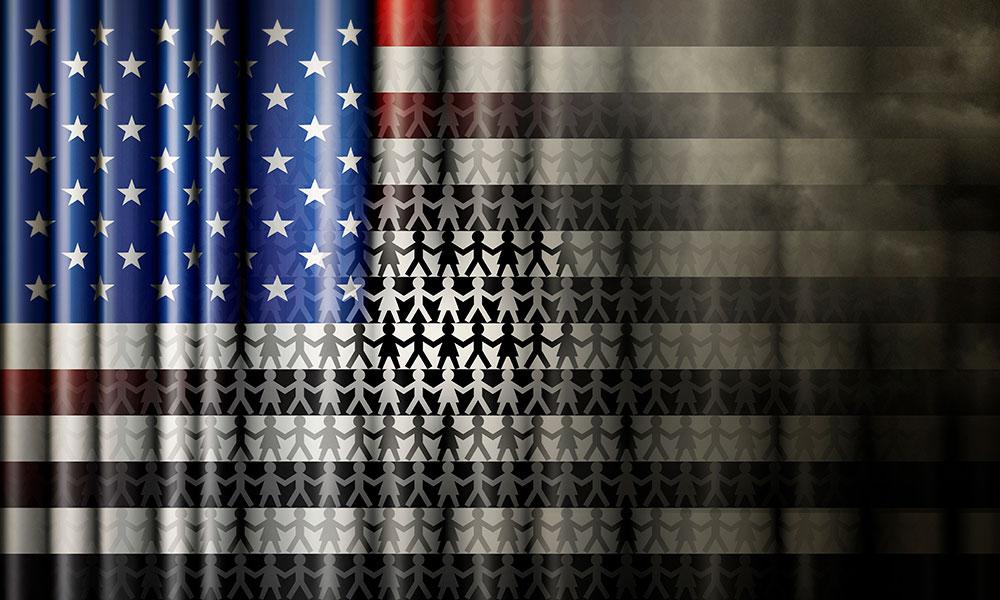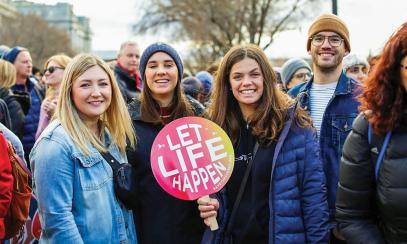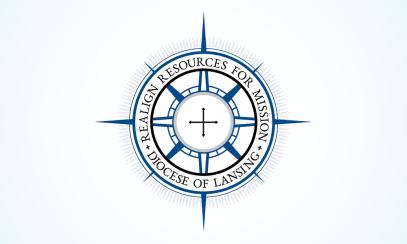
Racism - what does the Church have to say?
Recent events have reignited national protests in the United States. The death of George Floyd under the knee of a police officer has sparked a response in cities across the country; sadly, some of those protests have devolved into riots and lootings. George Floyd’s death follows several years of similar incidents – the deaths of other African-American people at the hands of police – in Missouri, Ohio, New York, Florida, Minnesota and elsewhere.
Statement of the U.S. Bishops on the death of George Floyd
• U.S. Bishops Label Death of George Floyd an Atrocity and Antithetical to the Gospel of Life
• Bishops Call Catholics to Stand for Just Action – Say Indifference Is Not an Option
Seven chairmen of committees within the U.S. Conference of Catholic Bishops issued a statement May 29 in response to the death of Mr. George Floyd and the protests which have broken out in Minneapolis and other cities in the U.S.
“We are broken-hearted, sickened, and outraged to watch another video of an African American man being killed before our very eyes. What’s more astounding is that this is happening within mere weeks of several other such occurrences. This is the latest wake-up call that needs to be answered by each of us in a spirit of determined conversion.
Racism is not a thing of the past or simply a throwaway political issue to be bandied about when convenient. It is a real and present danger that must be met head on.
As members of the Church, we must stand for the more difficult right and just actions instead of the easy wrongs of indifference. We cannot turn a blind eye to these atrocities and yet still try to profess to respect every human life. We serve a God of love, mercy, and justice.
“While it is expected that we will plead for peaceful non-violent protests, and we certainly do, we also stand in passionate support of communities that are understandably outraged. Too many communities around this country feel their voices are not being heard, their complaints about racist treatment are unheeded, and we are not doing enough to point out that this deadly treatment is antithetical to the Gospel of Life.
“As we said eighteen months ago in our most recent pastoral letter against racism, Open Wide Our Hearts, for people of color, some interactions with police can be fraught with fear and even danger. People of good conscience must never turn a blind eye when citizens are being deprived of their human dignity and even their lives. Indifference is not an option. As bishops, we unequivocally state that racism is a life issue.”
“We join Archbishop Bernard A. Hebda of St. Paul and Minneapolis in praying for the repose of the soul of Mr. George Floyd and all others who have lost their lives in a similar manner. We plead for an end to the violence in the wake of this tragedy and for the victims of the rioting. We pray for comfort for grieving families and friends. We pray for peace across the United States, particularly in Minnesota, while the legal process moves forward. We also anticipate a full investigation that results in rightful accountability and actual justice.
“We join our brother bishops to challenge everyone to come together, particularly with those who are from different cultural backgrounds. In this encounter, let us all seek greater understanding amongst God’s people. So many people who historically have been disenfranchised continue to experience sadness and pain, yet they endeavor to persevere and remain people of great faith. We encourage our pastors to encounter and more authentically accompany them, listen to their stories, and learn from them, finding substantive ways to enact systemic change. Such encounters will start to bring about the needed transformation of our understanding of true life, charity, and justice in the United States. Hopefully, then there will be many voices speaking out and seeking healing against the evil of racism in our land.”
Issued as the Church prepared to celebrate Pentecost, the bishops called upon “all Catholics to pray and work toward a new outpouring of the Holy Spirit. Let us pray for a supernatural desire to rid ourselves of the harm that bias and prejudice cause. We call upon Catholics to pray to the Holy Spirit for the Spirit of Truth to touch the hearts of all in the United States and to come down upon our criminal justice and law enforcement systems. Finally, let each and every Catholic, regardless of their ethnicity, beg God to heal our deeply broken view of each other, as well as our deeply broken society.”
– The statement was issued by Bishop Shelton J. Fabre of Houma-Thibodaux, chairman of the Ad Hoc Committee Against Racism; Archbishop Nelson J. Pérez of Philadelphia, chairman of the Committee on Cultural Diversity in the Church; Archbishop Paul S. Coakley of Oklahoma City, chairman of the Committee on Domestic Justice and Human Development; Archbishop Joseph F. Naumann of Kansas City in Kansas, chairman of the Committee on Pro-Life Activities; Bishop Joseph C. Bambera of Scranton, chairman of the Committee for Ecumenical and Interreligious Affairs; Bishop David G. O’Connell, auxiliary bishop of Los Angeles, chairman of the Subcommittee on the Catholic Campaign for Human Development; and Bishop Joseph N. Perry, auxiliary bishop of Chicago, chairman of the Subcommittee on African American Affairs.
U.S. BISHOPS RECEIVE CALL OF ENCOURAGEMENT AND ASSURANCES OF PRAYER FROM POPE FRANCIS
On June 3, Archbishop José H. Gomez of Los Angeles, and president of the U.S. Conference of Catholic Bishops, received a call from Pope Francis, where the Holy Father expressed his prayers and closeness to the Church and the people of the United States in this moment of unrest.
Archbishop Gomez shared this news with the U.S. bishops in the hope that they could take comfort and gain strength in the Holy Father’s encouragement. Pope Francis expressed his gratitude to the bishops for their pastoral tone in the Church’s response to the demonstrations across the country in their statements and actions since the death of George Floyd, and assured the bishops of his continued prayers and closeness in the days and weeks ahead. He expressed special prayers for Archbishop Bernard A. Hebda and the local Church of Saint Paul and Minneapolis.
Archbishop Gomez, on behalf of the bishops’ conference, conveyed gratitude to the Holy Father for his strong words of support and, in turn, assured the Holy Father of their prayers.
CATHOLIC SOCIAL TRADITION
Here are a few relevant themes at the heart of our Catholic social tradition:
Life and Dignity of the Human Person – Human life is sacred and the dignity of the human person is the foundation of a moral vision for society. We believe that every person is precious, that people are more important than things, and that the measure of every institution is whether it threatens or enhances the life and dignity of the human person.
Option for the Poor and Vulnerable – A basic moral test is how our most vulnerable members are faring. In a society marred by deepening divisions between rich and poor, our tradition recalls the story of the Last Judgment (Mt 25:31-46) and instructs us to put the needs of the poor and vulnerable first.
Solidarity – We are one human family whatever our national, racial, ethnic, economic, and ideological differences. We are our brothers and sisters keepers, wherever they may be. At the core of the virtue of solidarity is the pursuit of justice and peace.
FAITH Catholic Interview:
Father Norman Fischer
FAITH talked with Father Norman Fischer after incidents in Ferguson, Missouri and New York. He spoke of the issues of racism that have now led to the killing of George Floyd, and the subsequent protests against brutality.
Father Fischer, as you reflect on recent events, what do you think is at the heart of the problem? We have lost sight of the basics. Each one of us, regardless of race, gender, country of origin, or age is created in the image and likeness of God; is created for eternal life in communion with God. This means that every human being has an infinite value and dignity. Every human life is indeed sacred.
Unfortunately, the roots of the problem go back to the beginning. After the fall of our first parents, we read how their son Cain murdered his brother Abel in a fit a rage and jealousy. Cain, in effect, introduced another rupture in the human family through his actions. Since then, violence has been largely accepted as a part of human nature.
Then, as today, we do not seem to want to deal with each other. We do not want to take the time or the energy to enter into the other’s experience. We do not have the patience necessary for the fruit of compassion to be borne in our hearts. Instead, we are tempted to take the path of least resistance in dealing with others, that is, all too often we choose to eliminate or disregard the other altogether.
Of course, Jesus Christ came precisely to undo all of this by submitting himself to the senseless violence of the Cross. And Christ continues to offer us a way out of violence through love of God and neighbor.
What about the current cultural climate of mistrust that seems to dominate the media relationship between local authorities and the African-American community? The distrust that exists between members of the African-American community and many others and the police is very real. The incidences and outcomes in Ferguson, Cleveland, and Staten Island, for example, clearly are triggers that bring this distrust out into the open.
From the perspective of the black community, in such cases, the police are experienced as an aggressor to rather than as the defender of the community. Likewise, the failure to indict the police officers in Ferguson and Staten Island is interpreted as evidence that the justice system just doesn’t seem to care. The subsequent protests are the crying out of a humanity who is asking, “Who is my brother’s keeper?” As Dr. Martin Luther King, Jr. noted, “A riot is the language of the unheard.” At the same time, from the perspective of law enforcement, I am sure they suffer from this same cycle of distrust and fear that we are now seeing spiraling onto the streets of cities throughout the U.S.
What can be done to begin the hard work of overcoming these perceptions and of restoring these broken relationships? First, I think it is imperative that we name any fears with those among us. After all, Jesus has told us to “be not afraid.” By acknowledging what these fears may be, we can perhaps disarm our knee-jerk reactions and the behaviors that flow from fear. Only by being aware of our fears and preconceived notions about each other, can we hope to choose the life of the other instead of falling victim to the automatic response of destroying the other in the name of self-defense. In other words, we need to ask ourselves how we can serve the situation rather that adding fuel to it. We do this by focusing on the other, who is just as important and precious as we are.
Next, we have to be honest and act with integrity in both our lives and professions. For example, “to protect and to serve” looks like something. If the police can be more intentional in fostering community and strive to unlearn racial profiling, whether conscious or subconscious, in the communities they serve, that would be a start. Police can also search for ways to contribute positively to the life of the community and the culture of mistrust can slowly be transformed.
Third, we have to acknowledge the wounds of all involved. Compassion and empathy are due to all for all are broken. And, at the same time, we must firmly declare without rest that no one life is more valuable than another life.
Finally, I believe we must repent as a human family for the sins committed against the human family. We must not forget that it is sinful to be violent, to judge others based on color or on where they are from, to resist rightful authority, and to live in fear and isolation by building up walls of separation rather than building up the Kingdom of God.
What role does the Church have to play in the drama that is unfolding before us? First and foremost, we must not forget that the Body of Christ must witness to the aforementioned repentance in the life of the Church. We have to own our own susceptibility to being both victims of violence and perpetrators of senseless violence.
The People of God are also called to be peacemakers; to be part of the solution. As Catholic Christians, we have to have greater passion for peacemaking because everyone’s life is at stake. Again, as Dr. King stated so eloquently, “We must learn to live together as brothers or perish together as fools.”
As Christians, we must stand for Christ who displayed our broken human tendency to shed innocent blood in his very body on Calvary. We crucified life, innocent life, and we continue to crucify each other due to our unwillingness to acknowledge our true relatedness. This means we must not only name the shameful hurts, but we must be held accountable to those who we seek to serve as peace-makers. We must be instruments for the restoration of order to situations of personal and societal disorder. We do this only by inviting Christ into the heart of these conflicts for he alone is the salve that can bind our wounds, heal our brokenness and initiate new ways of seeing and listening to one another.



